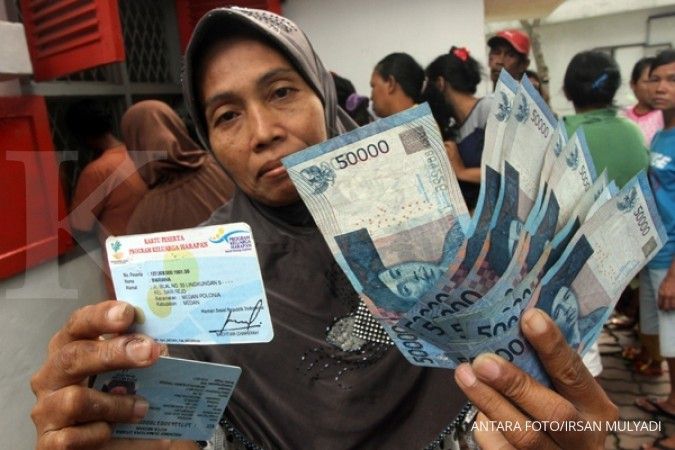JAKARTA. One month after taking office, President Joko “Jokowi” Widodo is now facing his biggest test to prove that he is indeed as reform-minded as people think.
His first test as leader of Southeast Asia’s largest economy lies in fuel subsidies, a policy that many analysts have criticized as inefficient, poorly targeted and detrimental to the country’s economic progress, as it constitutes a heavy fiscal burden.
Economists expect Jokowi not to back down from implementing fuel subsidy reform, despite recent drops in global oil prices that have provided short-term fiscal breathing room. Indeed, economists have said that now is the ideal moment for Jokowi to raise fuel prices.
“The government should act swiftly to adjust fuel subsidies,” Mandiri Sekuritas economists led by Aldian Taloputra wrote in a research note. “Such action will not only counter any potential market doubts about the new administration, but also bolster belief in its ability to execute the reform agendas investors have long wanted, hence reclaiming market confidence.”
The financial markets, however, have been jittery over the possibility that Jokowi might back down from reforming fuel subsidies, given the fall in global oil prices and possible political resistance.
Over the past four months, the price for benchmark Brent crude oil has declined by 25 percent after peaking at US$115 per barrel in June; it currently trades at $85 per barrel, near its lowest level in three years.
Chua Hak Bin, an economist with Bank of America Merrill Lynch, has argued that lower global oil prices would benefit Indonesia, a large net oil importer burdened with extravagant fuel subsidies.
“Based on historical precedence, the sharp drop in oil prices could actually reduce the probability of near-term action [on Indonesia’s fuel subsidies],” said Euben Paracuelles and Lavanya Venkateswaran, economists with Japan-based fund manager Nomura. “We note that during past episodes where fuel prices were increased significantly, these increases were made necessary by rising global crude oil prices.”
Fuel subsidy costs are estimated to top Rp 276 trillion ($22.7 billion) next year, around 15 percent of total state spending. The amount allocated for fuel subsidies stands higher than the country’s annual infrastructure spending.
Moreover, the immensely costly subsidies are considered to have little impact on economic growth or people’s welfare, especially as the policy mostly benefits car and motorcycle owners, who tend to come from the middle classes.
Analysts from ANZ Bank described Indonesia as among the countries with “the most problematic subsidy structures” as its subsidy bill, which is borne by the public purse, in fact contributes to fiscal deterioration.
So far, the Jokowi administration has maintained its commitment to undertaking reform of fuel subsidies, apparently unmoved by the falling global oil prices.
Vice President Jusuf Kalla has stated that the fuel price hike will occur this month. Meanwhile, the Social Affairs Ministry has distributed social aid cards, which include assistance funds intended to compensate for rising inflation triggered by an adjustment in fuel subsidies.
For now, the market is expecting Jokowi to raise fuel prices by at least Rp 2,000 per liter in November, according to Wellian Wiranto, an economist with OCBC Bank in Singapore.
However, a bolder rise of Rp 3,000 per liter “would signal a greater degree of reform seriousness” from Jokowi, as it would free up more of the fiscal space needed for economic reform, he argued.
“Until the government follows through with the fuel price hike, markets are likely to remain cautious,” Maybank analysts led by Saktiandi Supaat wrote in an email to clients. They predicted that the rupiah would weaken to 12,300 per US dollar from its current level of 12,100 if Jokowi failed to raise fuel prices. (Satria Sambijantoro)
/2014/04/01/825234547p.jpg)










